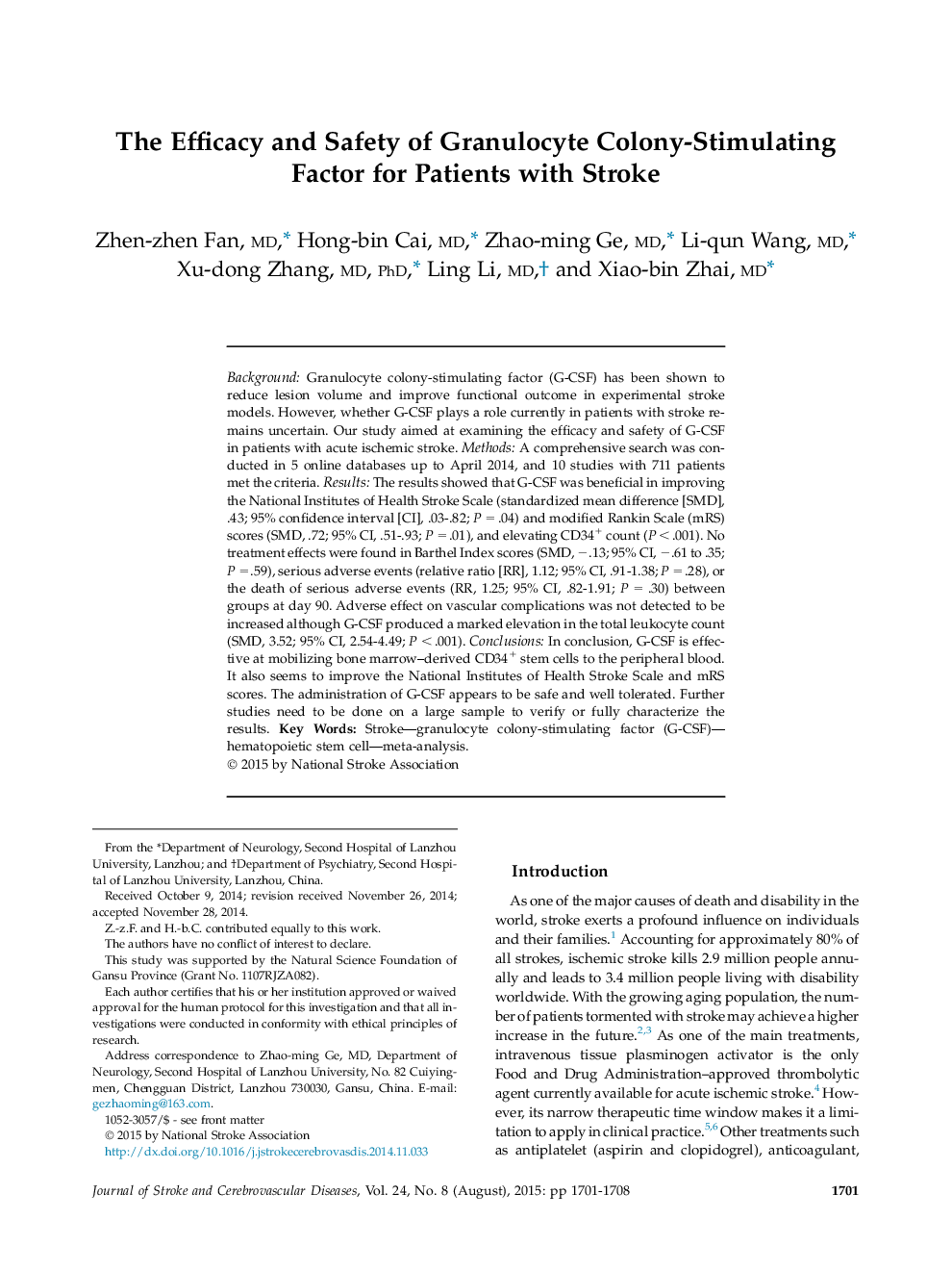| Article ID | Journal | Published Year | Pages | File Type |
|---|---|---|---|---|
| 5874934 | Journal of Stroke and Cerebrovascular Diseases | 2015 | 8 Pages |
BackgroundGranulocyte colony-stimulating factor (G-CSF) has been shown to reduce lesion volume and improve functional outcome in experimental stroke models. However, whether G-CSF plays a role currently in patients with stroke remains uncertain. Our study aimed at examining the efficacy and safety of G-CSF in patients with acute ischemic stroke.MethodsA comprehensive search was conducted in 5 online databases up to April 2014, and 10 studies with 711 patients met the criteria.ResultsThe results showed that G-CSF was beneficial in improving the National Institutes of Health Stroke Scale (standardized mean difference [SMD], .43; 95% confidence interval [CI], .03-.82; P = .04) and modified Rankin Scale (mRS) scores (SMD, .72; 95% CI, .51-.93; P = .01), and elevating CD34+ count (P < .001). No treatment effects were found in Barthel Index scores (SMD, â.13; 95% CI, â.61 to .35; P = .59), serious adverse events (relative ratio [RR], 1.12; 95% CI, .91-1.38; P = .28), or the death of serious adverse events (RR, 1.25; 95% CI, .82-1.91; P = .30) between groups at day 90. Adverse effect on vascular complications was not detected to be increased although G-CSF produced a marked elevation in the total leukocyte count (SMD, 3.52; 95% CI, 2.54-4.49; P < .001).ConclusionsIn conclusion, G-CSF is effective at mobilizing bone marrow-derived CD34+ stem cells to the peripheral blood. It also seems to improve the National Institutes of Health Stroke Scale and mRS scores. The administration of G-CSF appears to be safe and well tolerated. Further studies need to be done on a large sample to verify or fully characterize the results.
